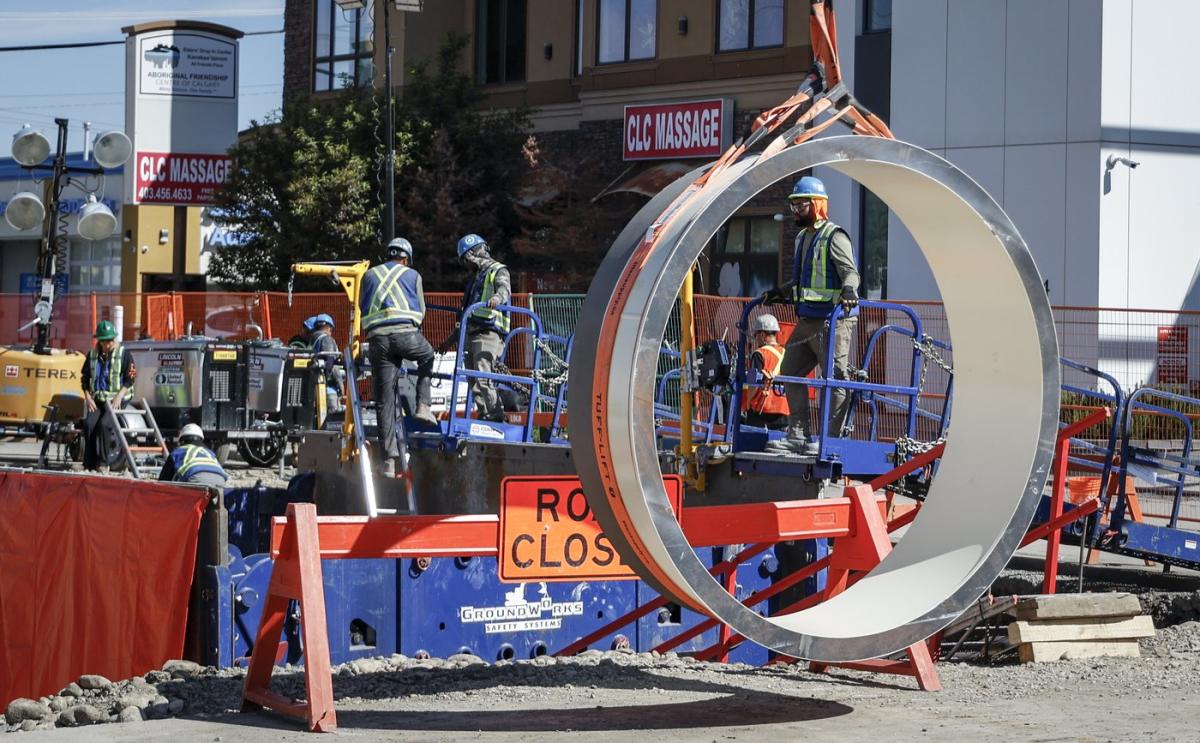


CALGARY — Calgary’s mayor says every skipped toilet flush over the next two weeks will matter as repairs on a troubled water main near the finish line and a treatment plant picking up the slack works full-tilt.
Jyoti Gondek, flanked by several city councillors, thanked citizens for the sacrifices they’ve made and urged them to do just a bit more to avoid more drastic water rationing.
The massive Bearspaw South Feeder Main in the city’s northwest burst in June, forcing the city to ban outdoor water use and urge Calgarians to use their toilets, showers, washing machines and dishwashers less.
Those measures had mostly eased when, early last month, Gondek announced the line would have to once again be taken out of service as more trouble spots had been found.
Those repairs are slated to be complete as scheduled on Sept. 23, with water rationing expected to end three days later.
During the outage, the Glenmore Water Treatment Plant in southwest Calgary has been handling more than twice what it would normally, and the increased strain has already caused some malfunctions.
“If we have another pump failure or another operating issue that requires us to reduce the Glenmore plant’s production of water, we’ll immediately be faced with a situation where we need to reduce our water usage dramatically, and none of us wants to get to that position,” Gondek told a news conference Monday.
“That’s the main reason that I’ve been asking you to keep up your great work in reducing water use, and I’m encouraging you to do just a little bit more.
“One less flush a day, one less shower in the week, one less load of laundry — all of those actions matter.”
On most days since the new restrictions took effect on Aug. 26, the city has been using more water than the system can sustainably manage.
Anything above 485 million litres a day, and the system is strained. Usage above 500 million means the city struggles to replenish reservoirs.
Usage was at 509 million litres on Sunday — a scorcher of a day with temperatures above 30 C. Typical water use is 600 million litres a day.
This report by The Canadian Press was first published Sept. 9, 2024.
Lauren Krugel, The Canadian Press